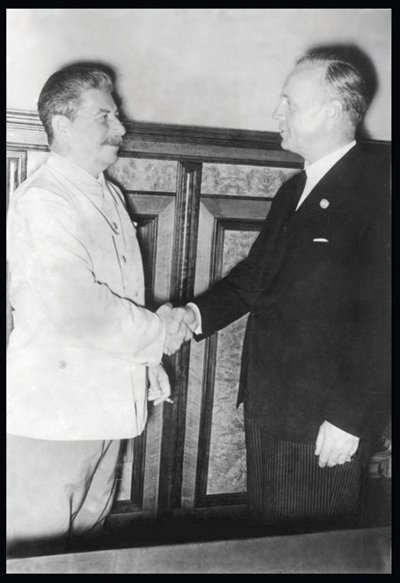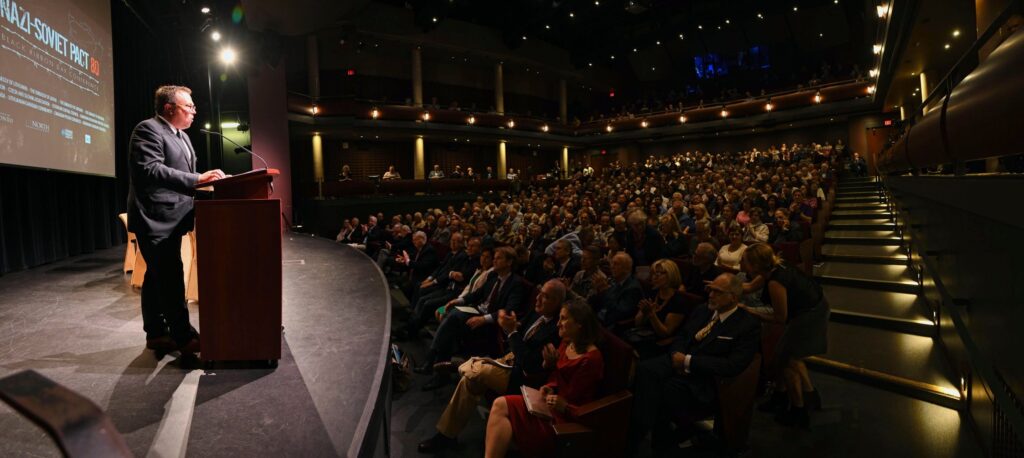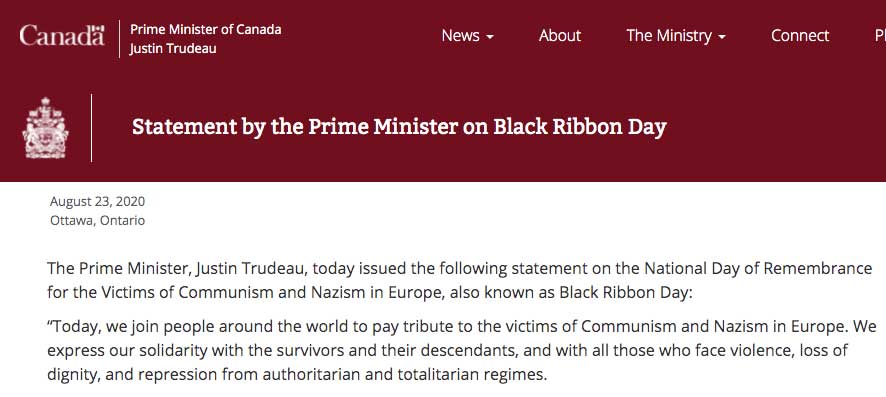On August 23, 1939, Adolf Hitler and Josef Stalin formally conspired to tear Europe in half when they signed a non-aggression pact and its secret protocols, whereby they agreed to divide Europe among them. Thus began the Second World War. The unprecedented scale of terror, bloodshed and violent repression that the Nazi-Soviet pact unleashed has forever scarred Europe and the millions of victims, many of whom escaped to Canada and live here today.
Black Ribbon Day was founded Canada in the 1980’s by a group of Central and Eastern European community activists, led by Markus Hess and by the late 1980’s became an internationally recognized movement. Interest in the movement waned after the collapse of the Soviet Union in 1991.



